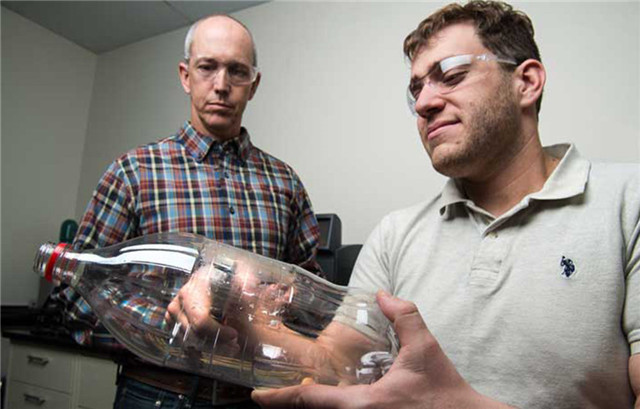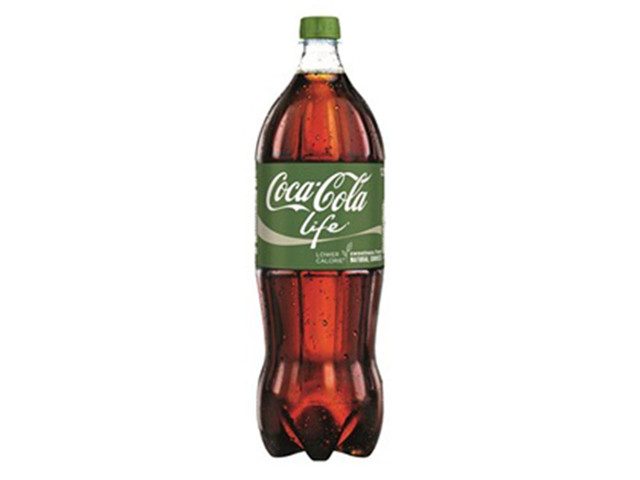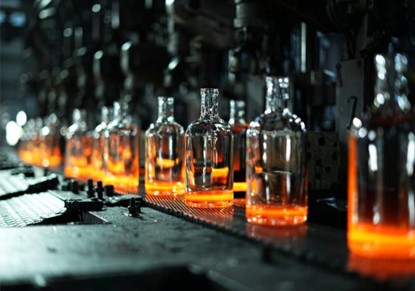We use cookies to operate this website and to improve its usability. Full details of what cookies are, why we use them and how you can manage them can be found by reading our Privacy & Cookies page. Please note that by using this site you are consenting to the use of cookies.
Beverage
NEW ENZYME IMPROVES PET RECYCLING
2018-06-04
Our global resources are finite. Prompted by this realisation, people’s growing awareness about recycling worldwide goes hand in hand with a global rise in recycling-friendly materials such as PET – a plastic material used to make beverage bottles, among other things. According to extrapolations, PET market share will grow by an additional 5.8% between 2016 and 2024.
CLIMATE-FRIENDLY RECYCLING
In view of the over 480 billion plastic bottles sold in 2016 and the forecast approximate 20% growth by 2021, measures to optimise the circular economy worldwide are indispensable.
Compared to incineration, recycling is 74% more climate friendly, says the ‘PET Recycling Schweiz’ association. This figure also includes the outlay associated with operating recycling plants, for transport, sorting, reclamation and the like. Recycling PET bottles could cut greenhouse gases by some 138,000 tons – roughly corresponding to the exhaust fumes emitted annually by all cars of a city of 80,000 inhabitants, according to the association.
CLIMATE-FRIENDLY RECYCLING
In view of the over 480 billion plastic bottles sold in 2016 and the forecast approximate 20% growth by 2021, measures to optimise the circular economy worldwide are indispensable.
Compared to incineration, recycling is 74% more climate friendly, says the ‘PET Recycling Schweiz’ association. This figure also includes the outlay associated with operating recycling plants, for transport, sorting, reclamation and the like. Recycling PET bottles could cut greenhouse gases by some 138,000 tons – roughly corresponding to the exhaust fumes emitted annually by all cars of a city of 80,000 inhabitants, according to the association.

Scientists found a mutated enzyme capable of decomposing plastics. Photo: Dennis Schroeder/NREL
Business, political and research spheres alike are all aware of this fact and have initiated various innovations for improved materials and optimised material recycling over the past years and decades.
CHANCE HIT
Recently, scientists at the University of Portsmouth in Great Britain and the National Renewable Energy Laboratory (NREL) funded by the US Department of Energy, have jointly managed to identify an enzyme that is capable of decomposing PET plastics and the bio-based polyethylene furanoate (PEF), therefore providing a sustainable recycling solution worldwide.
Business, political and research spheres alike are all aware of this fact and have initiated various innovations for improved materials and optimised material recycling over the past years and decades.
CHANCE HIT
Recently, scientists at the University of Portsmouth in Great Britain and the National Renewable Energy Laboratory (NREL) funded by the US Department of Energy, have jointly managed to identify an enzyme that is capable of decomposing PET plastics and the bio-based polyethylene furanoate (PEF), therefore providing a sustainable recycling solution worldwide.

In 2015 Coca-Cola launched Coca-Cola Life in Germany – the first bottle exclusively made of recycling PET within the international Coca-Cola organisation. Photo: Coca-Cola Company
The scientists actually discovered the PEF decomposing enzyme by chance. Their work was originally aimed at finding a solution to break down PET. The scientists accidentally synthesised a mutated version of this enzyme that proved to decompose PET far quicker than the original bacteria-derived enzyme.
As early as 2016 researchers in Japan found a mutated species of bacteria near a PET recycling plant and called it Ideonella sakaiensis 201-F6. They primarily feed on PET plastics; for digesting plastics these little creatures produce an enzyme that can cleave polymer chains. However, this process still takes too long for use on an industrial scale.
This is now about to change: because researchers are now using protein-engineering tools to optimise the enzymes to a degree that will allow industrial processing over the next few years.
The scientists actually discovered the PEF decomposing enzyme by chance. Their work was originally aimed at finding a solution to break down PET. The scientists accidentally synthesised a mutated version of this enzyme that proved to decompose PET far quicker than the original bacteria-derived enzyme.
As early as 2016 researchers in Japan found a mutated species of bacteria near a PET recycling plant and called it Ideonella sakaiensis 201-F6. They primarily feed on PET plastics; for digesting plastics these little creatures produce an enzyme that can cleave polymer chains. However, this process still takes too long for use on an industrial scale.
This is now about to change: because researchers are now using protein-engineering tools to optimise the enzymes to a degree that will allow industrial processing over the next few years.






